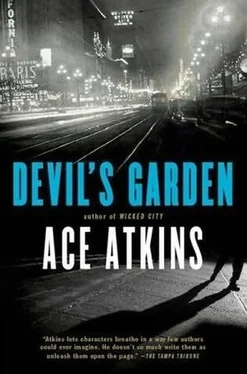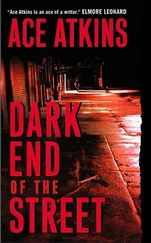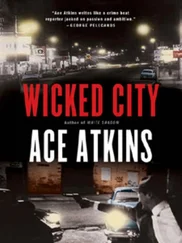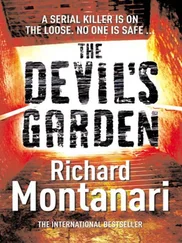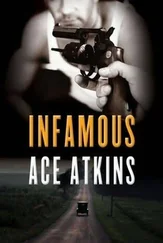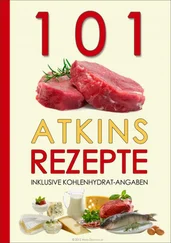An hour later, he didn’t hear the creak of the board-what woke him was the muffled cursing and the thundering boots on the landing. Sam pulled on his pants, slapped his suspenders over his bony shoulders, and ran out into the hall, but they were gone, running down the stairs and into the street, where he spotted four men in burlap hoods, one holding a torch, throwing Frank Little onto the bed of a wagon and whipping the two lead horses away.
Sam followed them on foot, but returned back to the rooming house at day-break. He shaved, dressed in fresh clothes, and packed his saddlebag. He had an hour till Western Union opened its doors. He would cable Baltimore for instructions.
He waited on the porch of the offices, the sun rising over the hills and covering crevices in white, hot light. He smoked a cigarette and was nearly done as the sound of horses approached, and he saw the sheriff and some of his men as they gathered and whipped their bridles to and fro, and skinny young Sam ran out to meet them to ask what was going on.
They were headed to the train trestle outside town and Sam followed, riding in the back of a Model T flatbed with a newspaperman at the wheel. The little truck jostled and threw him and he held on tight for fear he’d be tossed out on the road.
A crowd had already gathered under the trestle and there was pointing and shouting and a couple boys standing under a twisting body covered by a white hood and swaying back and forth from a twenty-foot hemp rope.
FIRST AND LAST WARNING had been painted in white across Little’s chest.
A big black camera snapped. The sheriff yelled for someone to get up there and cut the damn man down. One of the boys boasted he’d found part of an ear in the dirt and said Little hadn’t gone down without a fight.
Sam searched his pocket for his notebook but instead found the IWW pamphlet. When he pulled it out, the fresh ink bled on his fingers.
San Francisco
September 1921
With his two best buddies and his movie star dog, Roscoe Arbuckle drove north in a twenty-five-thousand-dollar Pierce-Arrow that came equipped with a cocktail bar and a backseat toilet. Roscoe was a big man, not as fat as he appeared in those two-reel comedies that had made him famous in which he wore pants twice his size, but portly nonetheless. His eyes were a pale light blue, the transparent color of a newborn, and his soft, hairless face often reminded moviegoers of a child. A two-hundred-and-sixty-pound child stuck in all kinds of bad situations where “Fatty” Arbuckle, as he was known to America, would dress up like a woman, nearly drown, or sometimes get shot in the ass.
As they hugged the rocky, sunny coast of northern California, Roscoe had sweet thoughts of his new three-million-dollar Paramount contract and a weekend with ever-flowing Scotch and endless warm pussy.
His dog, Luke, who now earned three hundred a week, hung his head out the window and soon sniffed the fetid air off San Francisco Bay, while in back, Roscoe’s buddies Lowell and Freddie smoked cigars, played cards, and poured more whiskey for the chauffeur, who hadn’t touched the wheel since Los Angeles. And soon that big Pierce-Arrow glided down Market Street, passing cable cars on the way up the hill, and toward the Ferry Building, before curving with a light touch of the brakes into Union Square and the St. Francis Hotel.
Roscoe pulled up under a portico, honking the horn and tossing the keys to the doorman, and heard whispers of “Fatty” and “Fatty Arbuckle,” and he smiled and winked and took a few pictures with Luke for the newspapers before doffing his chauffeur’s cap and checking into the twelfth floor.
“Luke’s hungry,” Roscoe said, relaxing with a plop into a red velvet sofa. “Order up a steak.”
“For a dog?” Fred asked.
“For me and the dog. Make it two.”
“What about gin?”
“Use the telephone, have ’em send up whatever you like. And a Victrola. We got to have a Victrola.”
Crates and crates of bootleg gin and Scotch whiskey appeared in the suite as if by magic, carried in on the strong backs of bellhops, and Roscoe peeled off great gobs of money and placed it into their palms. The men ordered ice and table fans and opened up the windows as pitchers of fresh-squeezed orange juice arrived for gin blossoms. The Victrola was wheeled in on a dolly with a crate of 78s and Fatty selected James Reese Europe and the 369th U.S. Infantry “Hell Fighters” Band playing “St. Louis Blues.” And the music came out tinny and loud and patriotic and festive at the same time and Roscoe sweated a bit as he moved with it. He cracked open another window looking down upon Union Square, feeling a breeze off the San Francisco Bay, hearing the sounds of the cable cars clanging, and spotting a crowd gathered down on Geary.
They were looking up at the perfect blue sky, hands shielding their eyes from the sun, and for a moment Roscoe thought the word must’ve spread he’d come to town. But he heard a noise from a roof, a motor, and one of the bellhops, now wheeling in a cart filled with silver platters of steaks-Luke licking his chops as he sat in a velvet chair-said there was a circus man about to ride his motorcycle over a tightrope.
Roscoe smiled and took his drink up to the roof just as the man, dressed in leather, with helmet and goggles, a woman beside him in a sidecar, revved off on a line of ridiculously narrow wire crossing over the people on the street, the paper hawkers and the newsboys and the dishwashers and the cooks, and the crowd whistled and clapped and yelled, their hearts about to explode from the excitement.
And Roscoe took a big swig of Scotch and clapped and applauded and yelled down to the crowd, the newsboys taking a shot of the famous film star cheering on the acrobat.
Roscoe walked to the hotel’s ledge and peered down, pretending to test the line and pantomiming a test walk, and then waved his hands off from the wire, and everyone yelled. All the dishwashers and maids and raggedy kids on the street. And that made Roscoe Arbuckle feel good, as he returned to room 1220 and asked his friend Fred to fetch up some women.
He twisted himself into a pair of striped pajamas and put on a silk robe and knew this was going to be a fine vacation, not planning on leaving the room till they carried him out. He cranked up the Victrola as far as it would go, playing his new favorite, Marion Harris singing “A Good Man Is Hard to Find.”
As he waited for the party to come to him, Roscoe cut up Luke’s steak and placed the silver tray on the floor, rubbing the nubbed ears of his old friend.
SAM HAMMETT HAD CASED the old slump-backed roadhouse for two nights, following up on a forty-dollar payoff to a San Quentin snitch named Pinto about the whereabouts of “Gloomy” Gus Schaefer. A few weeks back, Schaefer’s boys had knocked off a jewelry store in St. Paul, and the Old Man had sent him out to this beaten, nowhere crossroads just outside Vallejo to make sure the information they got was good. It was night, a full moon, and from the protective shadow of a eucalyptus tree Sam watched the sequined girls with painted lips and their rich daddies in double-breasted suits. They stumbled out onto the old porch and to their Model Ts and Cadillacs, while poor men in overalls would wander back down the crooked road.
Two of the Schaefers’ black Fords sat close to the rear porch, his gang upstairs laughing and playing cards, their images wobbly through the glass panes. Schaefer himself had appeared twenty minutes ago, Sam knowing instantly it was him, with the hangdog face and droopy eyes, leaning out an upstairs window, checking out the moon and stars, before taking off his jacket and resuming his place at the card table.
Sam craned his head up to the window and shook his head.
Читать дальше
